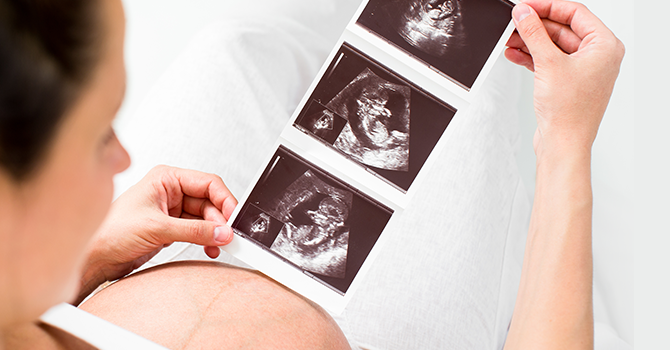Fertility & Reproduction
Whether you're a sperm donor, parents looking to adopt a child, parents looking to use assisted reproduction technologies, birth parents or parents looking into surrogacy, Kelly Jordan, our fertility lawyer, can help you negotiate agreements and contracts that protect you, your rights and the rights of all the parties involved in the fertility and reproduction process. Contact us today.
Assisted Human Reproduction
FERTILITY IN CANADA
Fertility trends in Canada have changed profoundly over the past four decades. This has had a profound impact on Canadian families. Total fertility rates have been declining. As a result of these trends, couples are increasingly turning to assisted reproductive technologies to assist them in achieving pregnancy.
Assisted reproductive technologies are basically any medical intervention for purpose of achieving a birth, including a method of causing a pregnancy through a means other than sexual intercourse. The result of these technologies is that now the birth of a child may include multiple participants: the intended parents, the birth parent, the genetic mother and the genetic father.
The advent of these technologies has been of great assistance to families facing infertility issues, single parents and gay/lesbian couples.
While the procedures have been available since approximately 1950, law reform in the area has been slow. The area was unregulated in Canada until 2004. Unlike the U.S. which has a relatively cohesive body of case law, Canada has few cases dealing with ART legal issues.
Fertility lawyer Kelly Jordan can assist you with all legal issues related to assisted human reproduction technology, such as creating donor agreements, surrogacy agreements, birth registration, and declaration of parentage, etc.

Surrogacy and Gestational Carriage Agreements
Egg donation, sperm donation and surrogacy is completely legal in Canada, although there are prohibitions on payment and what expenses can be paid is to be regulated. Paying consideration to a surrogate mother or paying another person to arrange for the services of a surrogate is now prohibited. Purchases of gametes (sperm or ova) or embryos is also prohibited.
It is important to have a donor contract or surrogacy agreement to set out all the rights and responsibilities of the parties.
All of the terms of these contracts may not be enforceable but they are important to clarify everyone’s expectations and to be evidence of intention in the event of a later disagreement.
Kelly D. Jordan, our fertility lawyer, can assist you in all aspects of contract negotiation and preparation.
Kelly has particular expertise in third party reproduction issues. She regularly assists parents in birth registration, adoption and declarations of parentage after children are born.
Our firm can ensure that the intended parents are legally and officially the parents on all birth registration documents.
Testimonial
"Kelly Jordan is highly skilled in her specialized area of reproductive law. Having working in the field of third party reproduction for over 20 years, it is essential to my business that I refer clients to lawyers who are as empathetic as they are qualified. Kelly Jordan and the members of her firm are such people. Her work is a wonderful compliment to the services I provide and the feedback I receive from clients I have referred to her, has always been very positive. Whether a client needs a contract drafted or a legal declaration done, I am always confident services will be provided in a timely manner and with the utmost skill and compassion. I am pleased to work with Jordan Battista and would not hesitate in sending my clients to her." - Joanne Wright, President, Canadian Surrogacy Options
Adoptions & Birth Registration

Rights of Parenthood
When we think of adoption, we often think of the event where a child is adopted by a couple through a Children’s Aid Society or other agency. There are several other circumstances where families seek to have the legal status of their children secured. There are blended families where a new partner wishes to adopt the children born from a former relationship. This process is called an adoption by a relative or stepparent and has its own unique process. It is the only legal manner in which all the rights of parenthood will be expanded to include the adoption applicants.
Kelly D. Jordan, our fertility lawyer, is recognized as an expert in Ontario with respect to birth registration involving assisted human reproduction. She can assist you with these registrations.
Fertility Law Frequently Asked Questions
Surrogacy is perfectly legal in Canada, provided it is altruistic. That is a surrogate can only be paid for expenses. The amount of expenses generally agreed upon varies having regard to different factors, such as the geographical location of the surrogate, her child care and household needs during the pregnancy and her income loss.
Egg and sperm donation is legal in Canada but a donor can only be paid expenses related to the donation. You cannot pay for ova and sperm. This is not true in some other jurisdictions in the United States for example. Many intended parents seek sperm from commercial banks in the United States since there are few available sperm donors in Canada.
Gestational surrogacy is when a woman carries a fetus to term for intended parents. An embryo is transferred to the carrier. The embryo may be created with the genetic sperm and ova of the intended parents, of only one of them, or with donor sperm and ova.
A surrogacy agreement is an agreement between the intended parents and the surrogate. It deals with issues such as medical testing, termination of the pregnancy, selective reduction, expense reimbursement. If it is signed before conception and all parties have independent lawyers, the birth of the child can be registered when the child is 7 days old if everyone is in agreement. This avoids a costly application to court before the Superior Court.
If you have a surrogacy agreement, with independent advice for all parties signed on pre-conception, you can avoid the cost of adoption or obtaining a declaration of parentage. You all must be in agreement and you cannot register the birth until the child I 7 days old.
Latest Posts
Kelly Jordan and Emma Katz Author a Chapter in Upcoming Family Law Textbook
“The legal landscape affecting the decision to parent for families requiring fertility assistance is complex… View Article
Reproductive Rights in Canada: What Happens After a Surrogacy Agreement
Navigating the nuanced landscape of reproductive rights in Canada involves considering various factors, from surrogacy… View Article
Privacy and Family Dispute Mediation
We’ve talked a lot about family dispute mediation in our blogs. While family law mediation… View Article